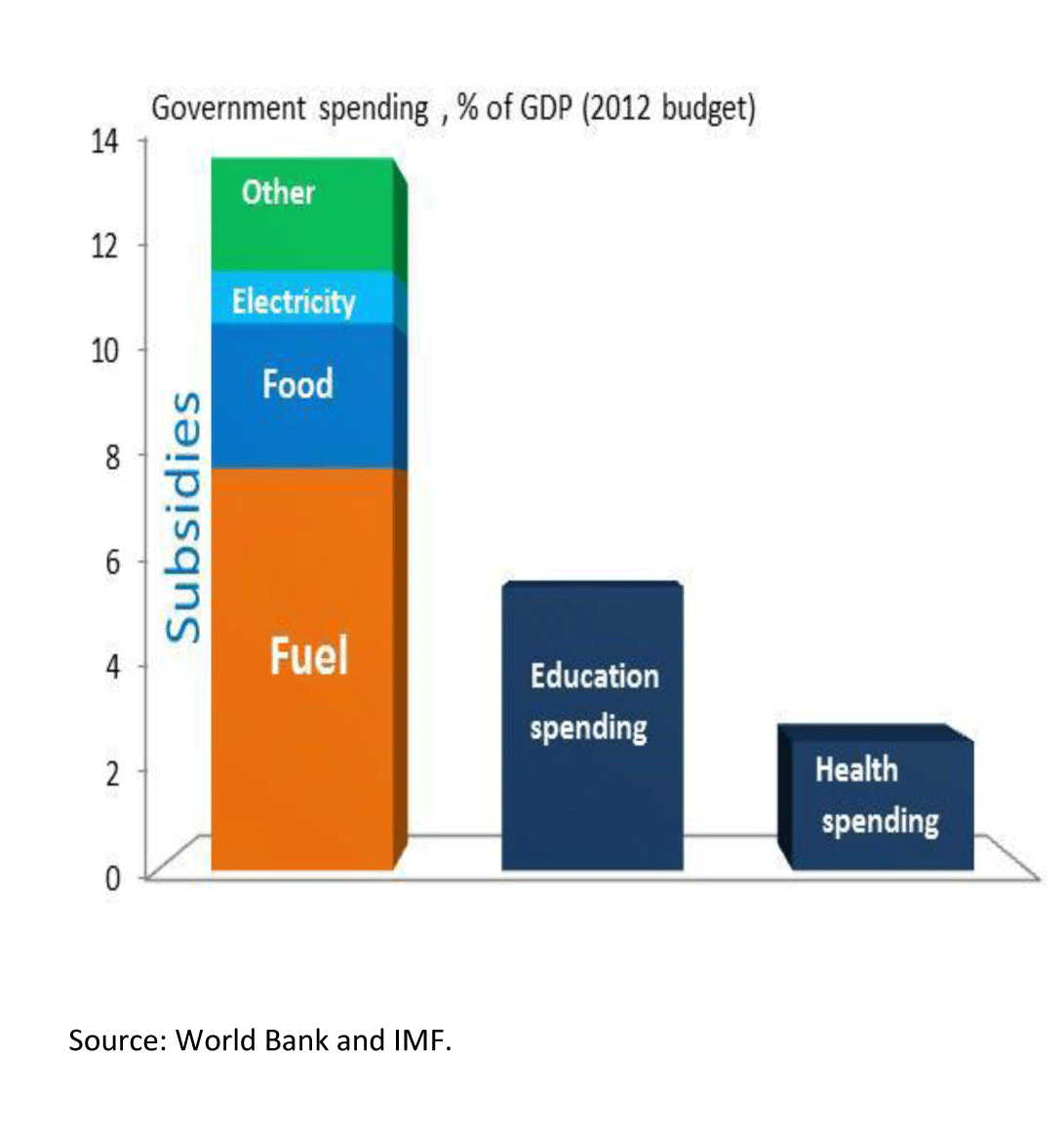![Libya's spending on subsidies compared to other development sectors - Source World Bank and . . .[restrict]IMF January 2014 MENA Quarterly Economic Brief.](http://www.libyaherald.com/wp-content/uploads/2014/02/55-Libya-MENA-graph-D-web-300x320.gif)
Tripoli, 7 February 2014:
“Libya’s labour market is skewed toward the public sector, which employs more than 80 percent of the formal workforce, while the private sector employs just 4 percent of Libyans”, the World Bank reported in its latest January MENA Quarterly Economic Brief.
“Furthermore”, the report continued, “attractive wages and benefits offered by the public sector have resulted in high wage expectations among job seekers and university graduates. As a result, the unemployment rate has remained high across the board, though official estimates show a decline in the figures post 2011 revolution”.
“Data released from the Ministry of Labour in September 2013 show that the unemployment rate has improved to 15 percent in 2013 from its high level of about 20 percent in 2010 and 2011. But”, the report noted, “unofficial estimates suggest that the actual figure is closer to 30 percent with higher rates for the youth”.
Worryingly, the report then went on to say that “World Bank estimates show that youth unemployment has remained at about 50 percent with the majority of unemployed holding university degrees”.
The report did not hold back regarding its concern for the challenges Libya’s economy faces. “There are major challenges facing the Libyan economy which, if not addressed, could hamper the prospects of a growth rebound”, it said.
The World Bank said that the priority of these challenges is Libya spends its oil revenue. “First is the management of Libya’s petroleum resources and the urgent need for economic diversification in order to ensure long-term financial and economic stability and Libya’s unemployment challenge”.
The report explained that “despite its large contribution to GDP, the oil and gas sector is highly capital intensive and contributes to less than 2 percent of total employment (according to the latest data)”. The report was highlighting the fact that while the hydrocarbon sector is a large revenue earner, it is in reality a very low employer.
The second perennial problem that the World Bank (and indeed the IMF) have been raising concerns about in successive reports, “is streamlining general subsidies (estimated at 11 percent of GDP in 2013) and public-sector wages that impose fiscal pressures on the government”.
“Subsidies are high and reduce the fiscal space available for spending priorities on health, education and investment in infrastructure”. In other words, the report is highlighting the fact that revenue spent on subsidies and wages is not being spent on development projects and sector – projects and sectors that have the potential to earn Libya other non-hydrocarbon revenues, and create more employment.
The third challenge that the report identified was the “skills mismatches and reforms to generate a vibrant private sector. In particular”, the report said, was “the lack of access to financing, uncertainty in the legal environment and a fragile security situation (which) are preventing private sector growth”, the MENA January QEB reported.
[/restrict]








